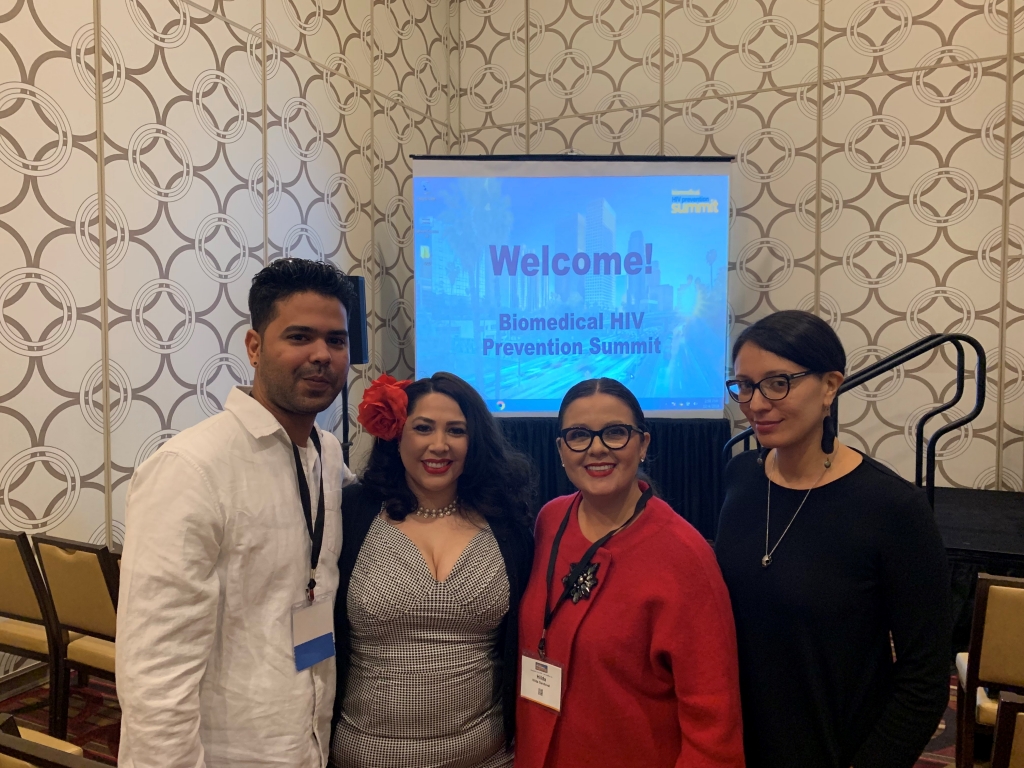NMAC’s third annual Biomedical HIV Prevention Summit was held on December 3-4, 2018 at the J.W. Marriott in downtown Los Angeles, packed with engaging plenaries, educational breakout presentations, and robust conversations about relevant topics including the #MeToo movement, U=U, intersectionality, PrEP and more. You can see the full agenda with presenters and presentations here: 2018 Biomedical HIV Prevention Summit - Program
Members of our staff including Isabelle Chu and Damilola Jolayemi and members of our Community Advisory Board (CAB) including Luckie Alexander-Fuller, Brandon Harrison, Ace Robinson, Abad Lopez, Damone Thomas, Ricky Rosales were in attendance. We also had members of our faculty and CAB that presented at one of the many workshops and the closing plenary at the conference!
- Dr. Nina Harawa (Biomedical Services for the Previously Incarcerated Returning to the Community and Closing Plenary: Closing the Gender & Racial Inequity Gap on ARV-Based Prevention)
- Dr. Raphael J. Landovitz (How Can Injectable Treatments Be Effective in Our Communities?)
- Chandi Moore (CAB) and Dr. Cathy Reback (PrEP & Trans Women)
- Dr. Cathy Reback (Use of Automated Natural Language Text-Based Support for PrEP Adherence)
- Ayako Miyashita-Ochoa (Sexual Health Rights for Youth)
- Dr. Arleen Leibowitz (STIs and Sexual Health)
- Natalie Sanchez (CAB) (Addressing Mistrust in Vulnerable Populations so That They Engage Successfully in Public Health Agencies and Endeavors)
Next year, the Summit will be held in Houston from December 2-3, 2019. For more information, visit the Biomedical HIV Prevention Summit website.
Check out some of our photos below and our live tweets from the event!


We’re at the the Biomedical HIV Summit this morning for the last day of this conference and kicking it off with @PreventionAC for U=U. pic.twitter.com/fHnOKlBxRl
— UCLA CHIPTS (@CHIPTS) December 4, 2018
“This graph speaks for itself”
Rising number of US Syphilis cases juxtaposed with the decreasing federal funding (STD Prevention Budget). #2018BHPS pic.twitter.com/zDkFDXsd16
— UCLA CHIPTS (@CHIPTS) December 4, 2018
“Evidence that there is some risk compensation w/use of PrEP…more routine check ups so STDs are identified more often/people with STDs are more often referred to PrEP.”
“Good news: more check ups for those on PrEP means possibly identifying and treating STDs earlier.” #2018BHPS pic.twitter.com/3v2pFoiHua— UCLA CHIPTS (@CHIPTS) December 4, 2018
Are you a CHIPTS member and have photos from the conference you’d like to share? Send them to chipts@mednet.ucla.edu!

